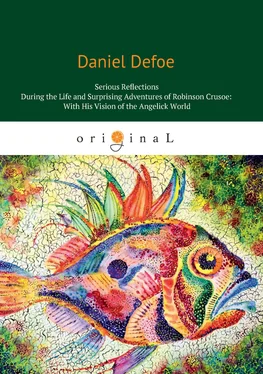Let no vain men flatter themselves with the pride of their honesty in mere matters of debtor and creditor, though that is also absolutely necessary and essential to an honest man.
But trace this honest man home to his family. Is he a tyrant or a churl to his wife? Is he a stranger to the conduct and behaviour of his children? Is he an Eli to their vices? Are they uninstructed, uncorrected, unexhorted, ungoverned, or ill governed? That man is a knave, a relative knave; he neither does his duty to God, or pays the debt of a husband, or of a parent, to his wife or his family.
Secondly, after the debt of education, there is the debt of induction due from us to our children. The debt from a parent is far from ending when the children come from school, as the brutes who turn their young off from them when they are just able to pick for themselves. It is our business, doubtless, to introduce them into the world, and to do it in such a manner as suits the circumstances we are in, as to their supply, and the inclinations and capacities of our children. This is a debt the want of paying which makes many children too justly reproach their parents with neglecting them in their youth, and not giving them the necessary introduction into the world, as might have qualified them to struggle and shift for themselves.
Not to do this is to ruin our children negatively on one hand, as doing it without judgment and without regard to our family circumstances, and our children’s capacities, is a positive ruining them on the other. I could very usefully run out this part into a long discourse on the necessity there is of consulting the inclinations and capacities of our children in our placing them out in the world. How many a martial spirit do we find damned to trade, while we spoil many a good porter, and convert the able limbs and bones of a blockhead into the figure of a long robe, or a gown and cassock?
How many awkward clumsy fellows do we breed to surgery or to music, whose fingers and joints Nature originally designed, and plainly showed it us by their size, were better suited for the blacksmith’s sledge or the carpenter’s axe, the waterman’s oar or the carman’s whip?
Whence comes it to pass that we have so many young men brought to the bar and to the pulpit with stammering tongues, hesitations and impediments in their speech, unmusical voices, and no common utterance; while, on the other hand, Nature’s cripples – bow-legged, battle hammed, and half-made creatures – are bred tumblers and dancingmasters?
I name these because they occur most in our common observation, and are all miserable examples, where the children curse the knavery of their fathers in not paying the debt they owed to them as parents, in putting them to employments that had been suitable to their capacities, and suitable to what Nature had cut them out for.
I came into a public-house once in London, where there was a black mulatto-looking man sitting, talking very warmly among some gentlemen, who, I observed, were listening very attentively to what he said, and I sat myself down and did the like. ‘T was with great pleasure I heard him discourse very handsomely on several weighty subjects. I found he was a very good scholar, had been very handsomely bred, and that learning and study were his delight; and, more than that, some of the best of science was at that time his employment. At length I took the freedom to ask him if he was born in England?
He replied with a great deal of good humour in the manner, but with an excess of resentment at his father, and with tears in his eyes, “Yes, yes, sir, I am a true-born Englishman; to my father’s shame be it spoken, who, being an Englishman himself, could find it in his heart to join himself to a negro woman, though he must needs know the children he should beget would curse the memory of such an action, and abhor his very name for the sake of it. Yes, yes,” says he, repeating it again, “I am an Englishman, and born in lawful wedlock; happy had it been for me, though my father had gone to the devil for whoredom, had he lain with a cook-maid, or produced me from the meanest beggar-woman in the street. My father might do the duty of nature to his black wife; but, God knows, he did no justice to his children. If it had not been for this damned black face of mine,” says he, then smiling, “I had been bred to the law, or brought up in the study of divinity; but my father gave me learning to no manner of purpose, for he knew I should never be able to rise by it to anything but a learned valet de chambre. What he put me to school for I cannot imagine; he spoiled a good tarpauling when he strove to make me a gentleman. When he had resolved to marry a slave and lie with a slave, he should have begot slaves, and let us have been bred as we were born; but he has twice ruined me – first, with getting me a frightful face, and then going to paint a gentleman upon me.”
It was a most affecting discourse indeed, and as such I record it; and I found it ended in tears from the person, who was in himself the most deserving, modest, and judicious man that I ever met with under a negro countenance in my life.
After this story I persuaded myself I need say no more to this case; the education of our children, their instruction, and the introducing them into the world, is a part of honesty, a debt we owe to them; and he cannot be an honest man that does not, to the utmost of his ability and judgment, endeavour to pay it.
All the other relative obligations, which family circumstances call for the discharge of, allow the same method of arguing for, and are debts in their proportion, and must be paid upon the same principle of integrity. I have neither room nor is there any occasion to enlarge upon them.
Chapter Three. Of the Immorality of Conversation, and the Vulgar Errors of Behaviour
Conversation is the brightest and most beautiful part of life; ‘tis an emblem of the enjoyment of a future state, for suitable society is a heavenly life; ‘tis that part of life by which mankind are not only distinguished from the inanimate world, but by which they are distinguished from one another. Perhaps I may be more particularly sensible of the benefit and of the pleasure of it, having been so effectually mortified with the want of it. But as I take it to be one of the peculiars of the rational life that man is a conversable creature, so it is his most complete blessing in life to be blessed with suitable persons about him to converse with. Bringing it down from generals to particulars, nothing can recommend a man more, nothing renders him more agreeable, nothing can be a better character to give of one man to another, next to that of his being an honest and religious man, than to say of him that he is very good company.
How delightful is it to see a man’s face always covered with smiles, and his soul shining continually in the goodness of his temper; to see an air of humour and pleasantness sit ever upon his brow, and to find him on all occasions the same, ever agreeable to others and to himself – a steady calm of mind, a clear head, and serene thoughts always acting the mastership upon him. Such a man has something angelic in his very countenance; the life of such a man is one entire scene of composure; ‘tis an anticipation of the future state, which we well represent by an eternal peace.
To such a man to be angry, is only to be just to himself, and to act as he ought to do; to be troubled or sad is only to act his reason, for as to being in a passion he knows nothing of it; passion is a storm in the mind, and this never happens to him; for all excesses, either of grief or of resentment, are foreigners, and have no habitation with him. He is the only man that can observe that Scripture heavenly dictate, “be angry and sin not;” and if ever he is very angry, ‘tis with himself, for giving way to be angry with any one else.
Читать дальше











